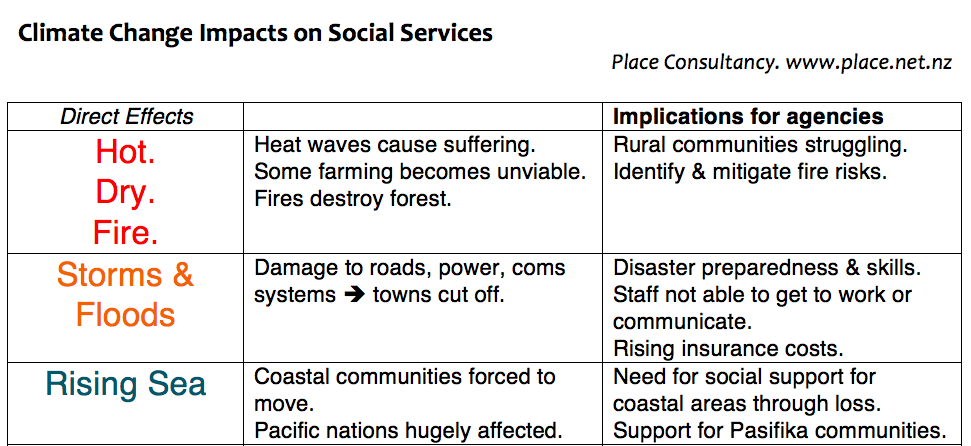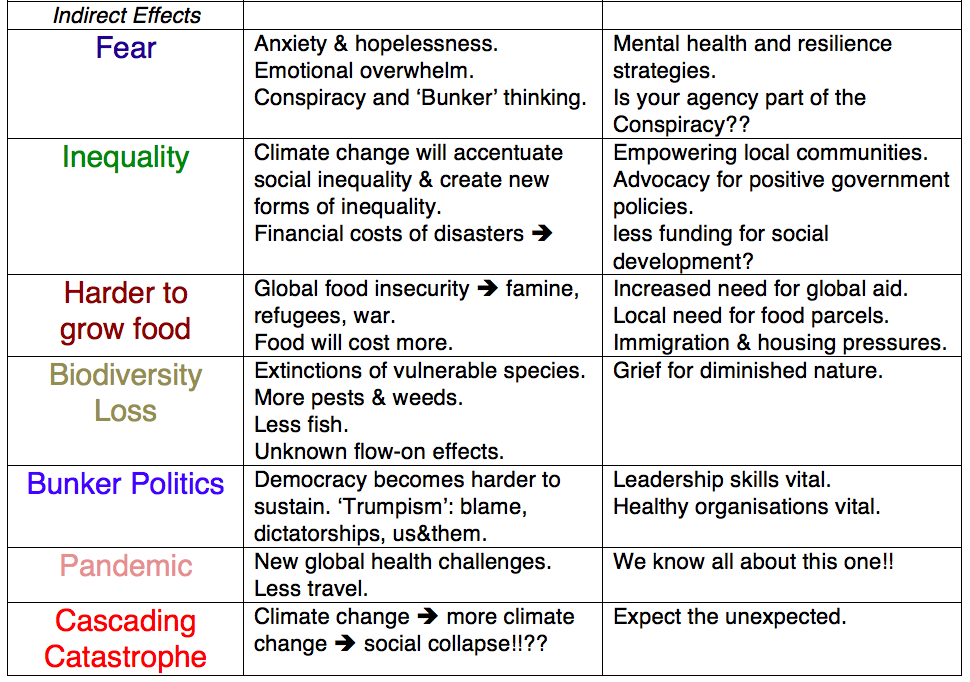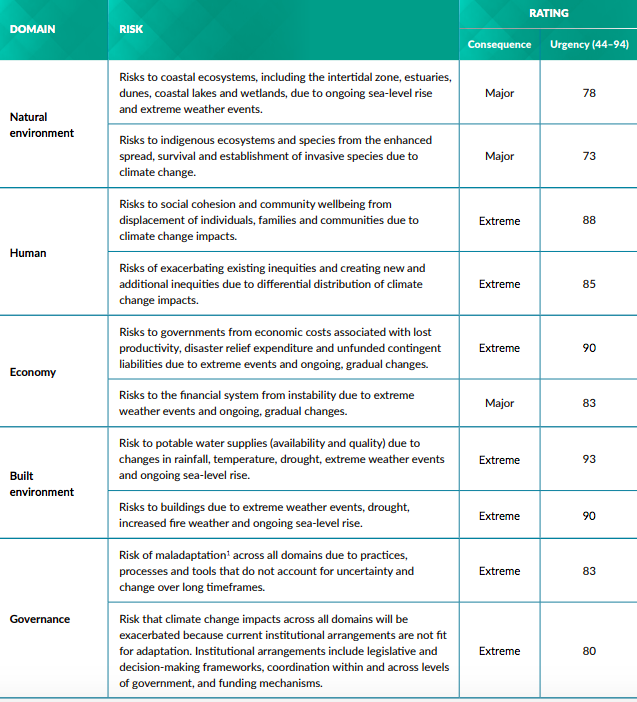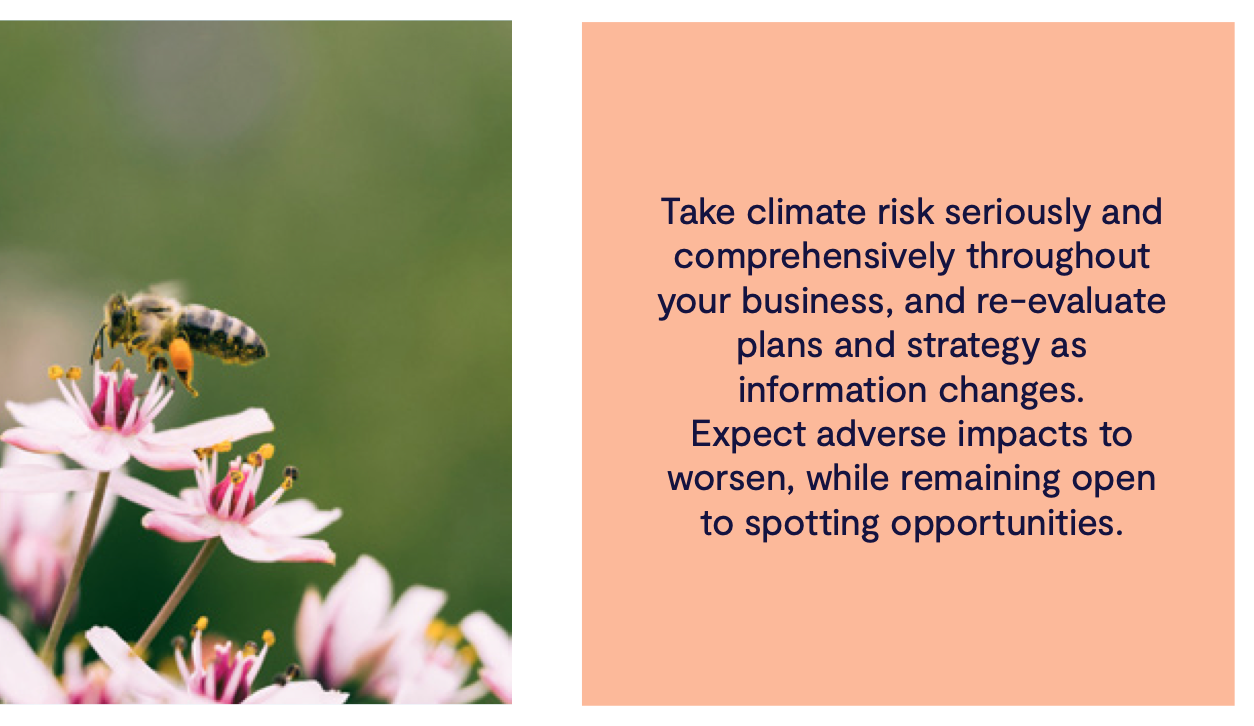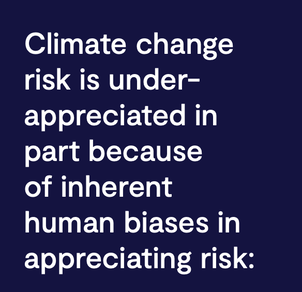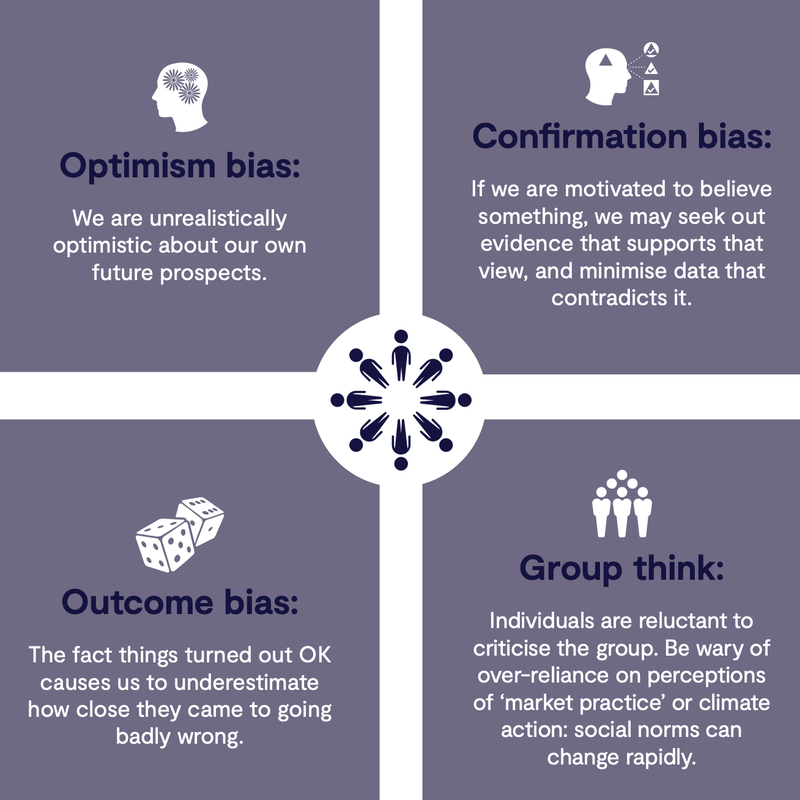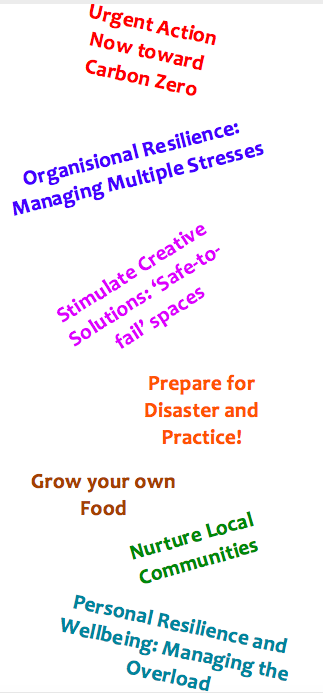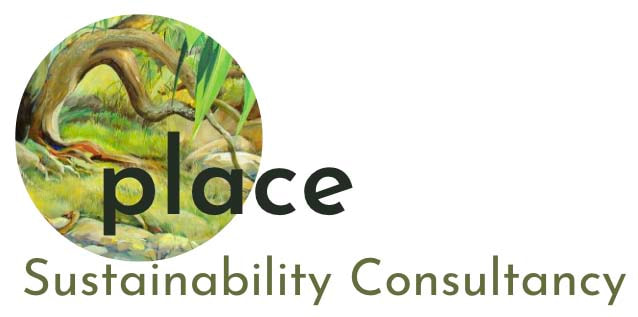Climate ChangeHow might climate change impact your organisation?
How is it already affecting your clients? Understanding Climate CrisisHere is an excellent article by Go Well Consulting's Nick Morrison:
An explanation of our climate crisis 'What is Climate Change?' Climate Change Commission view HERE
Talking about Climate Change'How to talk about climate change: a short guide'
is a marvellous resource put out by The Workshop, funded by Oxfam, written by kiwis Marianne Elliott and Jess Berentson-Shaw. Highly recommended! Risks and Impacts |
"Climate impacts will amplify existing risks and create new risks for natural and human systems. Risks are unevenly distributed and are generally greater for disadvantaged people and communities in countries at all levels of development” (IPCC, 2014a, p. 40).
|
A recent report by the NZ government identifies over 40 climate change risks impacting on our country.
"National climate change risk assessment for New Zealand - Snapshot" (MFE, August 2020). The PDF download page is here.
view the Ministry for the Environment website here.
Here are the top 10:
"National climate change risk assessment for New Zealand - Snapshot" (MFE, August 2020). The PDF download page is here.
view the Ministry for the Environment website here.
Here are the top 10:
The identified risks in the 'Human' and 'Governance' headings are especially relevant to social service organisations. Other high priority risks identified in the report relate to impact on Māori (H5 & H6) and mental health (H7).
Climate Risk Assessment
A Chapman Tripp and Aotearoa Circle report for Boards and Directors
https://chapmantripp.com/trends-insights/managing-climate-risk-in-new-zealand-in-2020/
https://chapmantripp.com/trends-insights/managing-climate-risk-in-new-zealand-in-2020/
Responding to Climate Change
|
Climate change comes with “compounding and cascading impacts” and “uncertainty and change over long timeframes”. Social service agencies are already under critical stress and pressure. What happens when the stresses keep increasing?
Of anywhere in NZ, Christchurch has experienced multiple compounding disasters over the past decade. What lessons have Christchurch social service agencies learned about resilience? If our social service agencies are to survive and serve in the long term, how will they need to adapt and change now? How might this agency thrive in a Carbon Zero economy? What would need to change for us to be carbon neutral? A key strategy is creativity, experimentation, play. Encourage fresh thinking and crazy ideas. “We cannot solve our problems with the same thinking we used when we created them.” Albert Einstein. Every organisation has disaster plans and policies. These must be regularly updated and checked for workability. Policies are only as good as people’s working knowledge of them. Learn and practice skills for disaster. |
Health
Climate Change and Health:
Ora Taiao, NZ Climate and Health Council - view HERE
Climate change is already contributing to global disease, disability and premature death – most seriously affecting people in poor countries, and the poorest within all countries.
Health threats for New Zealand include:
• Direct impacts – e.g. from high temperatures and other extreme weather events such as storms, floods and droughts, causing illness and injuries.
• Biologically-mediated impacts – e.g. changing patterns of infectious disease, global rises in food prices impacting on New Zealanders’ nutrition.
• Socially-mediated impacts – e.g. loss of livelihoods, forced migration, economic vulnerability and increased risks of conflict.
Ora Taiao, NZ Climate and Health Council - view HERE
Climate change is already contributing to global disease, disability and premature death – most seriously affecting people in poor countries, and the poorest within all countries.
Health threats for New Zealand include:
• Direct impacts – e.g. from high temperatures and other extreme weather events such as storms, floods and droughts, causing illness and injuries.
• Biologically-mediated impacts – e.g. changing patterns of infectious disease, global rises in food prices impacting on New Zealanders’ nutrition.
• Socially-mediated impacts – e.g. loss of livelihoods, forced migration, economic vulnerability and increased risks of conflict.
Climate change, health and general practice in Aotearoa New Zealand and the Pacific. View paper HERE
Royal NZ College of General Practitioners
Royal NZ College of General Practitioners
Effects of Climate Change on Human Health
Watch short video on Vimeo HERE
Professor Alistair Woodward, epidemiologist and biostatistician at the University of Auckland, who contributed to the latest report on climate change and health by Royal Society Te Apārangi, explains the main ways that climate change will disrupt our health.
"Climate change will not affect everyone equally. You can think of it as a threat multiplier. Climate change is going to make life harder for people who are already suffering."
Watch short video on Vimeo HERE
Professor Alistair Woodward, epidemiologist and biostatistician at the University of Auckland, who contributed to the latest report on climate change and health by Royal Society Te Apārangi, explains the main ways that climate change will disrupt our health.
"Climate change will not affect everyone equally. You can think of it as a threat multiplier. Climate change is going to make life harder for people who are already suffering."
Disaster Preparedness
Perhaps the most obvious effect of climate change, that we are already experiencing, is extreme weather events. This means we must prepare for more violent storms, drought, floods and fire. Every organisation should have plans for disaster preparedness.
How is disaster planning already included in your health and safety policies?
What protocols do you have in place?
What disasters are most likely to affect your organisation?
How is disaster planning already included in your health and safety policies?
What protocols do you have in place?
What disasters are most likely to affect your organisation?
An excellent page of resources for organisations to develop emergency plans is GetReady: view here
It includes a link to an awesome resource, "Staffed or Stuffed" provided by Resilient Organisations. View HERE
It includes a link to an awesome resource, "Staffed or Stuffed" provided by Resilient Organisations. View HERE
Highly recommended: "COMMUNITY PREPAREDNESS PLANS: A grassroots planning resource" by Raven Cretney. View here
To be developed:
Sample Disaster Preparedness Policy
Sample Disaster Preparedness Policy
Climate Change Justice: Comment by Bronwyn Hayward
'Sea Change: Climate Politics and New Zealand', 2017.
Climate change is not simply about carbon emissions. At its core it raises difficult questions about what obligations and responsibilities we owe others, including future generations, and what opportunities we have to address these obligations and put wrongs right. (p53)
When we take responsibility for the harm we have caused we are beginning to act according to the principle of 'ecological justice'. But ecological justice also demands that those affected by our actions be involved in determining the remediation we need to take. (p.52)
Greenhouse gas emissions are not neutral; they are markers of social class and status ... the top 10% of emitters contribute to 45% of global emissions. By contrast, the bottom 50% of emitters contribute just 13%. In NZ's public discussion about climate change policy it is quite striking how rarely issues of inequality are explicitly mentioned, let alone climate justice debates about environmental racism and decolonisation, procedural and distributional justice, or intergenerational equity. (p44). Our reluctance to make plain the connections between poverty, inequality and climate change may stem from the way power has been concentrated since colonisation in the hands of those who control access to, and the use of, natural resources. (p45)
'Sea Change: Climate Politics and New Zealand', 2017.
Climate change is not simply about carbon emissions. At its core it raises difficult questions about what obligations and responsibilities we owe others, including future generations, and what opportunities we have to address these obligations and put wrongs right. (p53)
When we take responsibility for the harm we have caused we are beginning to act according to the principle of 'ecological justice'. But ecological justice also demands that those affected by our actions be involved in determining the remediation we need to take. (p.52)
Greenhouse gas emissions are not neutral; they are markers of social class and status ... the top 10% of emitters contribute to 45% of global emissions. By contrast, the bottom 50% of emitters contribute just 13%. In NZ's public discussion about climate change policy it is quite striking how rarely issues of inequality are explicitly mentioned, let alone climate justice debates about environmental racism and decolonisation, procedural and distributional justice, or intergenerational equity. (p44). Our reluctance to make plain the connections between poverty, inequality and climate change may stem from the way power has been concentrated since colonisation in the hands of those who control access to, and the use of, natural resources. (p45)
Permanent Disaster: Comment by Jem Wendell
Climate chaos is going to lead to ever more disasters, floods, hurricanes, droughts, pandemics food price rises, and so on. And also the knock on effects in terms of political polarisation, financial instability. Once you disturb our environmental context, then in a complex human system, who knows how that's going to express itself? We are in a permanent disaster now. The climate is going to get worse for human habitation for hundreds of years. Even if we stopped all carbon emissions right now, we still go through two degrees of warming, and we still have the catastrophic widespread impacts that have been predicted for decades, of going through two degrees ambient warming over pre-industrial temperatures. I think it's a very plausible view to say we are now in disaster mode forever. And what does that mean? It is an invitation to the kind of solidarity that people experience and express in those moments, of being displaced because of a bushfire, or coming together after a terrorist attack.
Presentation to Te Ipu Taiao, Climate Crucible, Conference of the NZ Assocation of Psychotherapists, March 2021
Climate chaos is going to lead to ever more disasters, floods, hurricanes, droughts, pandemics food price rises, and so on. And also the knock on effects in terms of political polarisation, financial instability. Once you disturb our environmental context, then in a complex human system, who knows how that's going to express itself? We are in a permanent disaster now. The climate is going to get worse for human habitation for hundreds of years. Even if we stopped all carbon emissions right now, we still go through two degrees of warming, and we still have the catastrophic widespread impacts that have been predicted for decades, of going through two degrees ambient warming over pre-industrial temperatures. I think it's a very plausible view to say we are now in disaster mode forever. And what does that mean? It is an invitation to the kind of solidarity that people experience and express in those moments, of being displaced because of a bushfire, or coming together after a terrorist attack.
Presentation to Te Ipu Taiao, Climate Crucible, Conference of the NZ Assocation of Psychotherapists, March 2021
Climate Change Solutions

Visit Project Drawdown for inspiration in what is happening around the world in a range of areas.
"The World’s Leading Resource for Climate Solutions: Our mission is to help the world reach “Drawdown”— the point in the future when levels of greenhouse gases in the atmosphere stop climbing and start to steadily decline, thereby stopping catastrophic climate change — as quickly, safely, and equitably as possible."
"The World’s Leading Resource for Climate Solutions: Our mission is to help the world reach “Drawdown”— the point in the future when levels of greenhouse gases in the atmosphere stop climbing and start to steadily decline, thereby stopping catastrophic climate change — as quickly, safely, and equitably as possible."
Excerpt from Rod Oram's book 'Three Cities: Seeking Hope in the Anthopocene'
"Our goal has to be to save ourselves. To do so we must give this ecosystem that gives us life the best chance it has to recover and to continue to support us. Achieving this enormous goal will take countless steps. The three most critical are minimising climate change, and making sustainable use of land and oceans. Each in turn will take myriad steps. This can be achieved if people are wise and effective, quick and committed."
"Our goal has to be to save ourselves. To do so we must give this ecosystem that gives us life the best chance it has to recover and to continue to support us. Achieving this enormous goal will take countless steps. The three most critical are minimising climate change, and making sustainable use of land and oceans. Each in turn will take myriad steps. This can be achieved if people are wise and effective, quick and committed."

